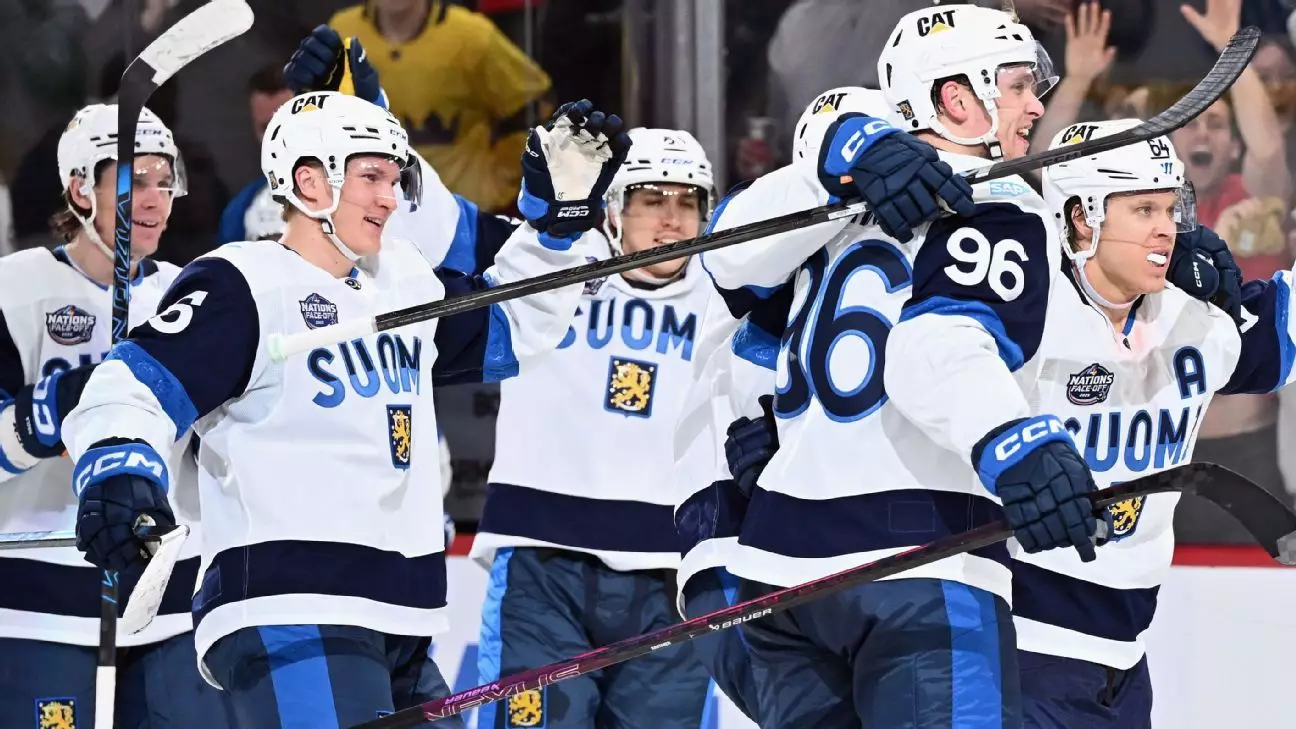On a crisp Saturday evening in Montreal, hockey fans were treated to a showdown for the ages as Finland squared off against their fierce rivals, Sweden, during the 4 Nations Face-Off tournament. The contest, marked by intensity, skill, and strategic plays, culminated in an exhilarating overtime victory for the Finns, sealing the game with a score of 4-3. With Mikael Granlund scoring the decisive goal just a minute and a half into the overtime period, the atmosphere at the Bell Centre was electric, echoing the joyous chants of “Suomi!” from the Finnish supporters.
Granlund’s overtime triumph was a testament to the unwavering determination and resilience of the Finnish team. Along with him, teammates Anton Lundell and Mikko Rantanen also found the back of the net, showcasing the depth and talent of the Finnish roster. The game was not without its tense moments, with Finland’s goaltender Kevin Lankinen making an impressive 21 saves in his first appearance in an NHL-run international tournament, demonstrating his ability to rise to the occasion. His crucial pad save on Mika Zibanejad early in the overtime period stood out as a significant turning point, exemplifying the high stakes and relentless pressure both teams faced.
Head coach Antti Pennanen’s decision to replace Juuse Saros with Lankinen paid off, particularly after Finland’s prior crushing loss to the United States. Captain Aleksander Barkov addressed the media post-game, reflecting on the team’s performance. “We were aware of our strengths despite the last game,” he said. Barkov’s leadership was evident on the ice; however, his condition after limping off momentarily raised concerns about the team’s potential injury woes, adding another layer to an already intense rivalry.
Finland’s victory over Sweden was not merely a number on the scoreboard; it had broader implications for both teams in the tournament standings. With this win, the Finns kept their hopes alive for a championship berth, crucial for momentum as they aimed for a spot in the finals against the top contenders in this prestigious competition. Sweden, on the other hand, faced uncertainty. Even though they managed goals from notable players like Mika Zibanejad and Rasmus Dahlin, their defensive lapses and poor goaltending—illustrated by Filip Gustavsson being pulled after surrendering two goals in quick succession—left them in a precarious position heading into their upcoming matches.
Barkov’s acknowledgment of the rivalry was palpable. “We knew that no matter the time on the clock, the passion for this matchup transcends everything,” he stated. Such intensity was underscored in a game that felt reminiscent of historic encounters, notably the classic 2006 Olympic gold medal match, where the tables turned dramatically this time in favor of Finland.
The match highlighted more than just athletic skill; it encapsulated the emotional and cultural significance of hockey in the Nordic regions. The fierce competition is rooted in decades of history, where each faceoff, shot, and save bore the weight of national pride. This rivalry is not just about winning; it’s a matter of honor and legacy.
As the tournament shifts its focus to Boston, the anticipation of future matchups grows, with Finland set to face Canada and Sweden taking on the United States. The outcomes of these games will determine the final placements, potentially paving the way for a thrilling conclusion to the tournament. With the stakes raised, fans can expect nothing short of exhilarating hockey as traditional powerhouses vie for supremacy in the realm of international competition.
Finland’s overtime victory over Sweden encapsulated the essence of competitive sports—a blend of skill, strategy, and passion. As the tournament unfolds, the rivalry between these two hockey powerhouses continues to captivate fans, driving home the exhilarating unpredictability that defines the game.

